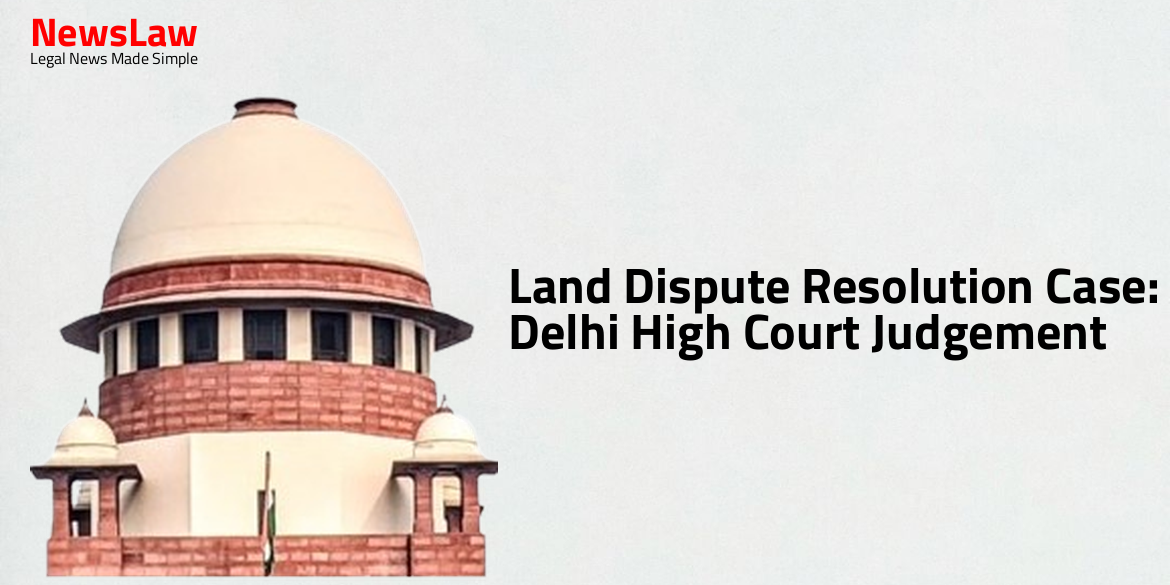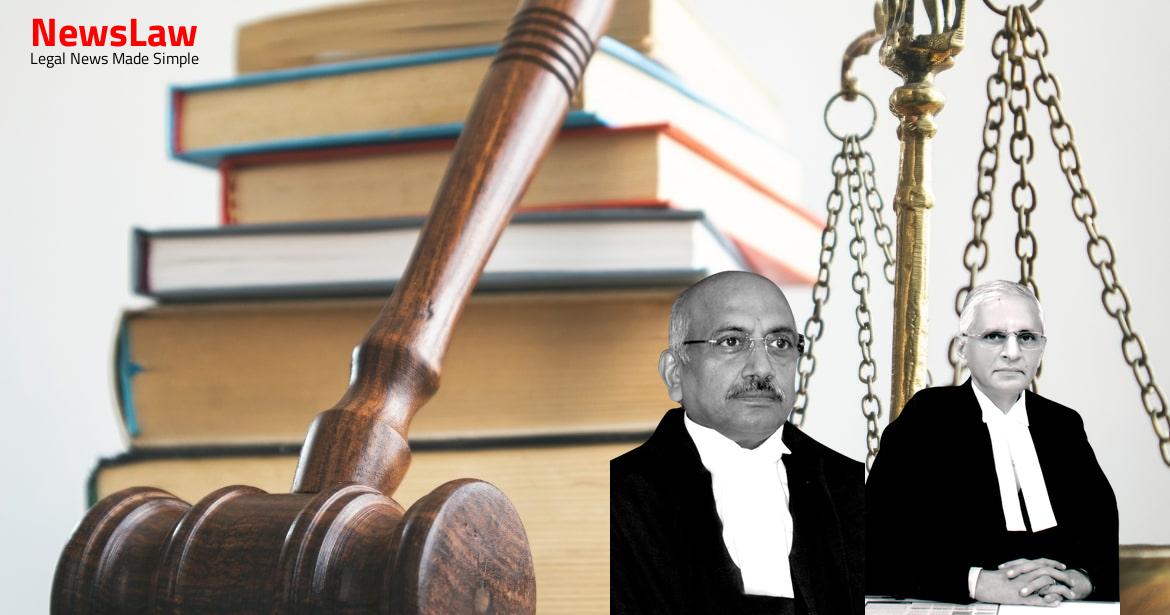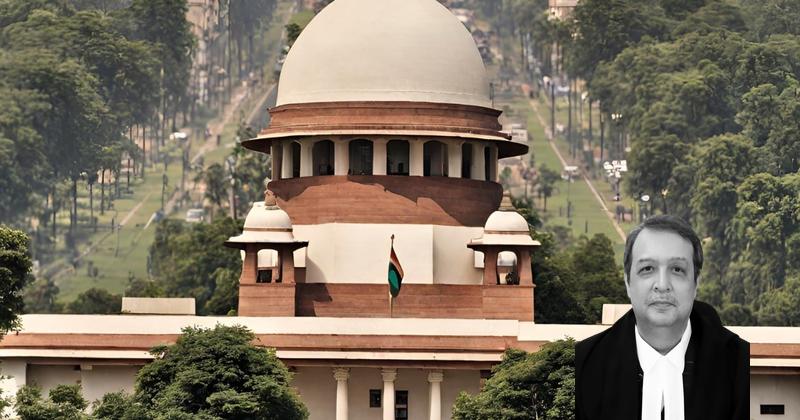Delve into the complex legal landscape surrounding compulsory retirement orders and the crucial role of judicial scrutiny. The court’s meticulous analysis ensures that decisions are made fairly and in the public interest, upholding the integrity of the judicial system. Stay tuned to unravel the legal nuances at play in this critical aspect of administrative law.
Facts
- Two former judicial officers from Jharkhand filed writ petitions against their compulsory retirement orders.
- The court passed an order on 06.09.2018 keeping the writ petitions pending.
- The High Court of Jharkhand approved the resolution of the screening committee on 25.10.2018.
- The matters were placed before the Screening Committee again on 11.10.2018, which found sufficient reasons and approved the earlier action of compulsorily retiring the officers.
Also Read: Interpretation of Pre-deposit Requirement under SARFAESI Act
Issue
- The court framed three questions of law regarding the recommendation and order for compulsory retirement of the appellant.
- The first question pertains to any legal flaws in the recommendation and order for compulsory retirement.
- The second question questions whether the order for compulsory retirement is arbitrary or irrational to justify judicial review.
Also Read: Deputation Allowance in NDRF Personnel Case
Arguments
- Challenge to orders of compulsory retirement and reasons assigned by Screening Committee.
- Contentions regarding retirement not in public interest, entire service record not considered, and promotions washing off previous adverse entries.
- Argument for considering entire history of appellant, including pre-promotion period.
- Rule 56(j) of Fundamental Rules being relevant in this context.
- Importance of impartiality and unbiased judgement for litigants entering the courtroom.
Also Read: Analysis of Limitation in Setting Aside Execution Sale
Analysis
- Compulsory retirement orders passed under Rule 74(b)(ii) of the Jharkhand Service Code, 2001.
- Rule requires at least three months’ notice or equivalent pay in lieu of notice.
- Government servant can be required to retire in public interest on completing thirty years of service or attaining fifty years of age.
- Appointing authority can specify the retirement date in the notice.
- The law requires the authority to consider the entire service record of the employee for compulsory retirement.
- A single adverse entry regarding integrity, even in the remote past, can warrant compulsory retirement.
- Compulsory retirement does not strip the government servant of accrued rights.
- Judicial scrutiny is not excluded entirely when compulsory retirement decisions are made.
- Judicial review is permitted in rare cases of real injustice or unsustainable conclusions by the Committee/Full Court.
- The decision for compulsory retirement involves no civil consequences and is based on public interest.
- The Full Court’s decision in such cases allows for limited judicial review.
- Promotions do not erase earlier adverse records for deciding on compulsory retirement.
- In the case of judicial officers, the assessment for continued service includes evaluating the entire service record.
- The Full Court’s decision after due deliberation leaves little room for claims of non-application of mind or mala fides.
- The judgment in D. Ramaswami v. State of T. N. emphasized that public officials with doubtful integrity or questionable reputation should not benefit from service after attaining the required length of service or age.
- In Baikuntha Nath Das v. Chief Distt. Medical Officer, it was noted that if an authority genuinely believes a judicial officer’s integrity is in doubt and it is in the public interest to retire them, judicial review should be exercised with caution.
- The concept of ‘washed-off theory’ was explained in Rajendra Singh Verma v. Lt. Governor (NCT of Delhi) where it was stated that adverse entries prior to an employee’s promotion can be disregarded when considering further promotion.
- Union of India v. Col. J.N. Sinha clarified that compulsory retirement is not punitive in nature and cannot be challenged in terms of the authority’s opinion being in the public interest.
- The principle that judges must be of impeccable integrity was highlighted in the reference to Article 235 of the Constitution of India allowing High Courts to assess the performance of judicial officers.
- Judges are expected to perform their duties with integrity, impartiality, and intellectual honesty for the judicial process and rule of law to be upheld.
- In Pyare Mohan Lal v. State of Jharkhand, it was reaffirmed that an order of compulsory retirement is not a punishment unless imposed due to proven misconduct.
- The overall service record of a government employee must be considered when contemplating compulsory retirement, ensuring no isolated entries are overstated.
- The necessity to include both past conduct and recent performance in evaluating an employee for compulsory retirement was stressed to prevent arbitrary decision-making.
- The High Court’s power to discipline judicial officers, including through compulsory retirement, was deemed paramount, with the entire service record taken into account.
- The court will not exercise its power of judicial review unless there are allegations of mala fides or if the facts clearly show that the decision of compulsory retirement is unsupportable
- Restraint must be exercised by the court before setting aside decisions made by collective bodies of senior High Court Judges
- In the opinion of the court, the decisions being reviewed are not fit cases for interference
Decision
- Both writ petitions dismissed
- Any pending application(s) disposed of
Case Title: ARUN KUMAR GUPTA Vs. STATE OF JHARKHAND (2020 INSC 228)
Case Number: W.P.(C) No.-000190 / 2018



